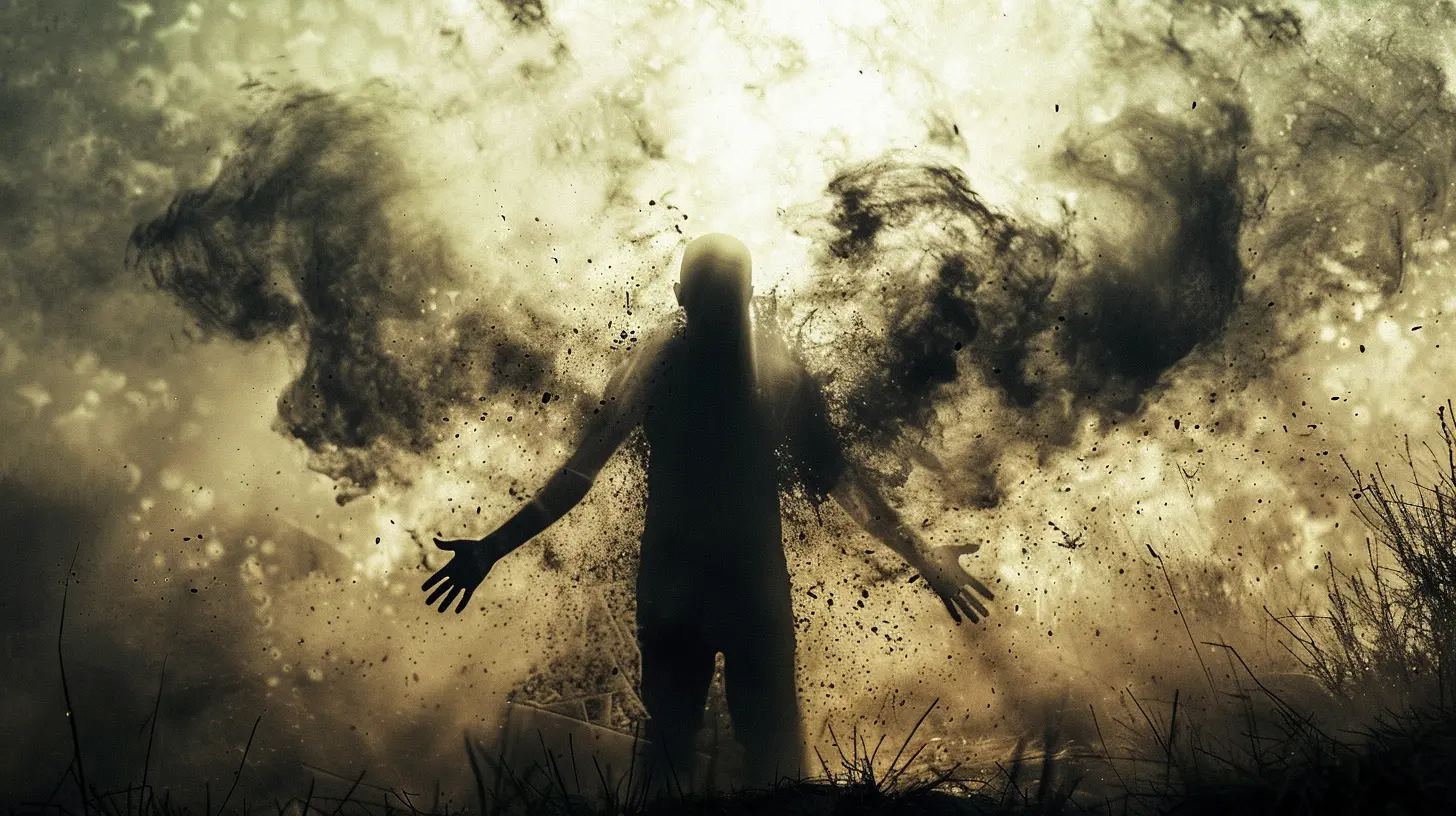Understanding the Fear Response: Fight, Flight, or Freeze?
30 August 2025
Let’s get one thing straight—we’ve all had that moment when our hearts leap into our throats. You know the feeling: you’re walking to the bathroom at 2 AM and suddenly hear a creak. Is it the wind? A ghost? Your cat being a ninja again? Regardless, your body goes full drama queen. Bam! Goosebumps, racing heart, sweaty palms—you just activated your fear response.
Welcome to the wonderfully wacky world of the human brain and its panic button. Today, we’re going deep—but in a relatable, non-boring way—into understanding what happens when fear strikes. Yep, it’s the classic trio: fight, flight, or freeze. Let's break it down, neuron by neuron (but in plain English, promise).
What is the Fear Response Anyway?
Think of the fear response like your body’s emergency fire alarm. It’s handled by your good ol’ pal, the amygdala. Tiny name. Big job.When something even slightly sketchy happens—be it a bear in the wild or your ex liking your new Instagram post—your amygdala jumps into action. It’s like the nosy neighborhood watch of your brain. It tells your body, “Hey! SOMETHING’S OFF! PREPARE FOR CHAOS!”
Then, boom. Adrenaline hits your bloodstream like an espresso shot, cortisol joins the party, and your body prepares to either throw down, dip out, or freeze like that one cousin who can’t play dodgeball.
Let’s meet our three fear response MVPs.
Fight: The Inner Warrior Awakens
Ah yes, the "fight" response. This is when you channel your inner Marvel superhero.When Does It Kick In?
When your brain thinks it has a chance of overpowering the threat. Maybe it’s a small dog charging at you—or a rude coworker messing with your stapler again. Your body floods with energy, your chest puffs out, fists clench, and eyebrows do the angry dance.What Happens in Your Body?
- Your muscles tense up (ready to go full ninja mode).- Blood pumps faster (like you're about to run a marathon).
- Pain sensitivity lowers (so you don’t stop to cry about a stubbed toe mid-battle).
It’s raw, primal, and if used correctly, kind of badass.
When Fight Goes Wrong
The downside? Sometimes we “fight” when we shouldn’t—like yelling during a disagreement or throwing a tantrum over spilled coffee. It’s your brain trying to protect you…but also maybe overreacting just a tad.
Flight: Cue the Olympic Sprinter
If fighting seems like a bad idea, your brain might hit the emergency exit and book it out of there.When Does It Kick In?
If the threat seems too dangerous or too large to square up against, your mind says, “Nope, we out.” This is the flight response.What Happens to You?
- Heart rate skyrockets (because you're prepping to bolt).- Peripheral vision sharpens (to scan escape routes).
- Blood rushes to your legs (so you can run faster than you ever have at the gym).
Basically, you're one fear away from becoming The Flash.
Everyday Examples?
- Dodging a tough conversation like a pro.- Bailing from a party the minute someone discusses politics.
- Ghosting someone because conflict = scary.
Is it always healthy? Not really. But your brain means well, okay?
Freeze: The Human Statue Mode
Then there’s freeze. Arguably the most confusing, since it seems like… doing nothing. But trust me—it’s doing plenty.Why Freeze?
If fighting feels risky and running isn’t an option, your brain goes: “Let’s keep really, really still. Maybe if we pretend we’re wallpaper, the danger will go away.”It’s like the possum strategy. Play dead, stay silent, blend in, and hope for the best.
How Does It Feel?
- Your body might feel paralyzed.- Breathing becomes shallow.
- Your mind goes blank—or loops over the worst-case scenario again (and again, and again).
Freeze often gets a bad rap because it feels like failure. But it’s not! It’s just another clever survival trick from our caveman ancestors who had to deal with saber-toothed tigers. You? You’re dealing with passive-aggressive emails. Same idea.
So…Why Do We React Differently?
Now, if you’re wondering, “Why does my friend go full Karen on a server while I just shrink into my hoodie?”—great question.The fear response is influenced by things like:
- Genetics: Thanks, mom and dad.
- Past experiences: Trauma can rewire how you react.
- Personality type: Are you the confrontational or avoidant type?
- Brain chemistry: Some of us are just extra spicy.
Plus, let’s be honest—context matters. You might be all fight in traffic, all flight during family reunions, and full freeze during Zoom presentations. We contain multitudes.
Fear in the Modern World: When Lions Are Metaphorical
Here’s the kicker: our fear response hasn't caught up with the times.It evolved to save us from literal life-or-death situations. But nowadays, "threats" look a little different:
- Public speaking
- Social rejection
- Job interviews
- Dating apps (hello, existential dread)
Your brain doesn’t know your boss isn’t a bear. It just senses danger and reacts like your life is on the line. That’s how you end up sweating through your shirt because you have to send a “quick update” email.
When the Fear Response Goes Haywire
Sometimes, your fear switch gets stuck in the "on" position. That’s when anxiety shows up like an overstaying houseguest.Signs of a Hijacked Fear Response:
- Constant worry, even when things are chill- Feeling nervous without knowing why
- Trouble sleeping, focusing, or relaxing
- Avoiding anything that could trigger stress
If this feels familiar, don’t panic (well, try not to). It’s super common, and therapy, mindfulness, or even just talking it out can help bring balance back.
Can You Train Your Fear Response?
Short answer: kind of. You can’t stop fear from happening, but you can choose how you manage it.Here’s How:
1. Mindfulness: Notice your body’s signs. Are your shoulders at ear level? Is your jaw clenched like you’re holding a grudge?2. Deep Breathing: It’s cliché because it works. Deep breaths tell your body, “Chill. We’re not in danger.”
3. Grounding Techniques: Focus on what’s physically around you. What can you smell, touch, see? It pulls you out of your mental spin cycle.
4. Cognitive Behavioral Therapy: Fancy name, solid results. It helps reframe how you interpret stressors.
5. Exercise: Move your body, shake off anxiety. Literally.
No, you can’t rewire your brain overnight. But with consistent effort, you can go from “freak out mode” to “cool as a cucumber on vacation.”
The Funny Side of Fear
Let’s be real, some fear responses are unintentionally hilarious. Like when someone gets scared by a toaster pop and jumps like they’ve been electrocuted. Or when you scream because of a spider, only to realize it was a piece of fluff.We’re beautifully dramatic creatures. And you know what? It’s okay to laugh at ourselves. Especially since fear responses are one of the few things we all share—regardless of age, culture, or how brave we pretend to be.
Wrapping Up: Fear Isn’t the Enemy
Here’s what I want you to take away: fear isn’t your enemy. It’s your body doing its best to protect you—even if that means freezing up in front of a bartender or running from a wasp like it’s chasing you with a knife.The key is understanding your fear response, being kind to yourself when it shows up, and maybe learning to work with it instead of against it.
So next time you feel the fight, flight, or freeze kick in—don’t judge. Just say, “Thanks, brain. You’re trying your best.” Then take a deep breath, lower your shoulders, and proceed like the brave, quirky human you are.
all images in this post were generated using AI tools
Category:
Psychology Of FearAuthor:

Nina Reilly
Discussion
rate this article
1 comments
Rory Monroe
Great article! I appreciate how you explained the complexities of the fear response. Understanding these mechanisms can truly enhance our awareness and coping strategies in challenging situations. Looking forward to more insights!
September 11, 2025 at 3:32 PM

Nina Reilly
Thank you for your kind words! I'm glad you found the article helpful. Stay tuned for more insights!


